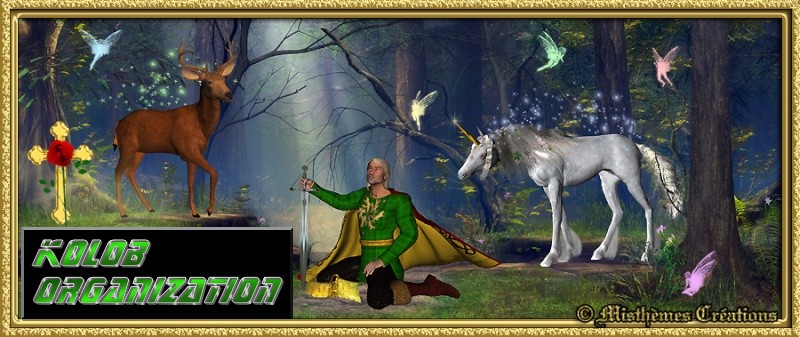
Forum encyclopédique d'histoire des Mormonismes et de la Franc-Maçonnerie & archéologie - sciences - aéronautique - paranormal - ufologie- orbs - ésotérisme - symbolisme
|
|
| | About the Three Nephites |  |
| | | Auteur | Message |
|---|
Commandeur Adama
Magister Ordo Kolob - Admin

Nombre de messages : 8905
Age : 60
Localisation : Pays de Néphi - Mormon forest
Date d'inscription : 16/02/2007
Chevalier de Kolob - Vers la Sagesse
 A reçu la Lumière: 180 A reçu la Lumière: 180
 En quête du Vase Précieux et Elu: En quête du Vase Précieux et Elu:
    (150/200) (150/200)
 A la recherche du couple de Licornes du Jardin d'Eden: A la recherche du couple de Licornes du Jardin d'Eden:
    (7/700) (7/700)
 |  Sujet: About the Three Nephites Sujet: About the Three Nephites  Ven 13 Juin - 23:57 Ven 13 Juin - 23:57 | |
| About the Three Nephites
Review of About the Three Nephites by C. Douglas Beardall and Jewel N. Beardall
Reviewed By: Richard L. Hill
Provo, Utah: Maxwell Institute, 1993. Pp. 87–95
The views expressed in this article are the views of the author and do not represent the position of the Maxwell Institute, Brigham Young University.
About the Three Nephites
C. Douglas Beardall and Jewel N. Beardall
Provo, UT: LDS Book, 1992. xxiii + 242 pp., no bibliography or index. $9.95
Reviewed by Richard L. Hill1
Accuracy was a prime motivation in our efforts to present this valuable information, and for that purpose we have documented and credited the source material to the best of our knowledge. (pp. 239-40; emphasis added)
My purpose in reviewing this book is not to question the eyewitness claims of sincere Latter-day Saints of supernatural visitations by the Three Nephites. I believe, as the Lord has clearly stated, that the three Nephite disciples will perform a marvelous ministry on the earth until his Second Coming (3 Nephi 28). Rather, my purpose is to review the content, research, editing, and attribution methodology of this book.
About the Three Nephites broadens the body of Latter-day Saint rumor, folklore, and apocryphal stories. Despite its stated objective in the Preface of "dispelling some of the rumor and myths which circulate from time to time" and "to quash rumor and untruth" (p. vii), this amateurish book carelessly and commercially propagates faith-promoting rumors, myths, and folklore under the guise of religious scholarship.
But more disturbing yet, About the Three Nephites appears to be a blatant and disgraceful rip-off of two earlier out-of-print books, The Three Nephites by the prolific and prominent polygamist author Ogden Kraut,2 and The Three Nephites: The Substance and Significance of the Legend in Folklore by professional folklorist Hector Lee.3 About the Three Nephites appears to have copied a substantial part of its chapter 1 from Kraut's work. In addition, this book appears to have copied almost all of its chapter 6 from Lee's work.
However, it does not stop there! Where attribution to Kraut and Lee is required (for thirty-three accounts from Kraut and seven of thirteen accounts from Lee), this book gives no attribution whatsoever; therefore, over two-thirds of the stories in the book lack proper attribution. Reading Kraut's book is like experiencing deja vu after reading this one. Amazingly, Kraut's name and book are not mentioned anywhere in this book. Kraut's prominence as a polygamist might be disturbing to mainstream Latter-day Saint readers.
For example, chapter 1 (entitled "Voyages of Christopher Columbus: Did a Crew Member Meet the Three Nephites?") substantially copies and poorly rewords, without any attribution, a 1909 Improvement Era article by E. D. Partridge entitled "The Three Nephites: Did One of Columbus' Sailors See Them?"4 which is reprinted in Kraut's book.5 Though the first three pages of this book's chapter 1 are clearly its own, the last two pages are clearly Partridge's. A side-by-side analysis of these texts is included as Appendix A.
Chapter 6 contains part of an 1852 discourse by Brigham Young,6 the introduction and conclusion of which are copied in rote fashion from Lee (without any attribution whatsoever). This is clear because the same mistakes in date, page number, and title made by Lee in his transcription from the primary source are also made in this book.7 This book copies Lee's introduction and concluding remarks to the discourse identically, except for two words changed and three words added. A side-by-side analysis of these texts is included as Appendix B.
This book is very lax in its attempts to cover-up its failure to research many of its cited primary sources, for which it should have given attribution to Kraut or Lee. In many instances, About the Three Nephites copies from Kraut or Lee, citing the primary source without having consulted it, even when it is an easily available source such as the Journal of Discourses. Here again, this book's mistakes become obvious. For example, Lee includes several stories in which he substantially edited the primary source material, placing ellipses to denote his editing. About the Three Nephites identically copies Lee's substantial editing, indicating that the primary source was not consulted, though this book only makes reference to the primary source.8
Furthermore, this book includes a story in chapter 45 entitled "Diamond in the Cave," which is an English translation from a Danish original, copied word for word by this book from Lee, without attribution.9 Lee clearly noted that he engaged the translator William Mulder for his book. About the Three Nephites cleverly cites the original Danish text, but eliminates Lee's note, which indicates that the translation is Mulder's and was done for Lee's book.10
About the Three Nephites also modifies stories to suit its audience. In two instances, Nephite visitation stories are changed by removing words that could cast doubt on their veracity. In the Columbus story mentioned above, this book removes, without ellipses, a reference to the supposed Nephites as wearing a long, white dress "so like a friar of the order of St. Mary of mercy."11 Was this reference to the man looking like a Catholic friar removed to further the folklore that it was a Nephite and not a friar? Again, in the "Diamonds in the Cave" story cited above, this book removes, without ellipses, the eyewitnesses' statement that "liquor which had been brought along contributed to enliving [sic] the mood."12 Again, was this reference removed in order to prevent mainstream Latter-day Saint readers from supposing that liquor might have contributed to the vision or because of Latter-day Saint sensitivity to alcohol?
The rest of the book is laced with other stories from collections of folklore cited heavily by Kraut, e.g., Heart Throbs of the West 13 and Assorted Gems of Priceless Value.14 In addition, several stories are included with proper attribution from Lee's work. More recent anecdotes included in this book result from Wasatch front newspaper advertisements by the editors soliciting Three Nephite accounts from the general public.15
What is troubling about this is that, according to Douglas Beardall, "Each person whose experience is published is paid a royalty."16 In other words, these testifiers apparently sell sacred spiritual experiences for centavos.17
This raises a serious question for Latter-day Saints: should these sacred experiences be repeated and published? President George Albert Smith, in response to a question from folklorist Hector Lee regarding collecting and publishing Three Nephite stories, stated:
Furthermore, so far as records of manifestations are concerned, the doctrine of the Church is that these are given for the up-building of the individuals to whom they come and that they are not for public display or public recording. They are regarded as sacred by those who have them, and while they may on occasion repeat them, generally speaking, I repeat, they are for the individual who receives them.18
As another specific example of this book's uncareful research and lack of proper attribution, chapter 2 (entitled "Our Flag and the Constitution") repeats a story recited in Kraut's work just ten pages later than the Columbus story referred to above. Not only does this book not give attribution to Kraut, but it uses as a reference a book cited by Kraut entitled America's Thirteen Colonial States. But here this book makes a critical mistake: it mechanically copies Kraut's story, failing to include the author, publisher, and date of publication of America's Thirteen Colonial States just as Kraut had. In my research for this review, I was unable to locate America's Thirteen Colonial States anywhere, so I requested help from Douglas Beardall, who cited it as his primary source. Beardall informed me that he had received the flag story by mail from an anonymous source in the BYU Sociology Department and that to the date of my interview with him, he had never seen a copy of the primary source, America's Thirteen Colonial States. I thereupon contacted Ogden Kraut, who informed me that he cannot remember the source of the story either, and does not have a copy of America's Thirteen Colonial States but recalls that author N. B. Lundwall may have given the story to him.19 Was this book's only source for this story Kraut's book, not an anonymous source or America's Thirteen Colonial States? Was it for that reason that Beardall refused further cooperation in finding the original source book, claiming that I was critical of his research techniques.20
As a further example of this book's lack of care in scholarship, the story entitled "Our Flag and the Constitution" is really about the Declaration of Independence and states so clearly in the text!21
As another example of giving the wrong impression, this book states that: "We have hundreds of eyewitness testimonies of the celestial endeavors [of the Three Nephites] here on the earth among the saints" (p. 242; emphasis added). Despite its sixty chapters, this book contains only fourteen eyewitness accounts, four of which were from young children. The rest of the accounts (thirty-seven) are not eyewitness at all, but second, third, or fourth-hand stories. The other chapters include statements made about the Three Nephites by various authorities.
This book asserts that "the sole purpose of spiritual instruction [is] to encourage and assist each of us into patterning our lives in duplicity to Christ and his leading disciples" (p. xxii, emphasis added). Duplicity means "contradictory doubleness of thought, speech or action."22 Perhaps this incorrect use of duplicity is a Freudian slip?
Douglas Beardall told me that his "book is selling very well." "In fact," he stated, "we have ordered another 22,000 copies printed."23 Heaven help us! In fairness, one must wonder how much of the profit on this book belongs to Ogden Kraut and Hector Lee to compensate them for their substantial research.
The Beardalls apparently plan a second volume. In the introduction, they request their readers to submit additional accounts of Three Nephite visitations. I hope that in their next attempt the Beardalls will begin to employ professional and ethical research, attribution, and editing methods.
I also hope that this uncarefully prepared book will, by its negative example, encourage all authors, publishers, and sellers of books marketed to Latter-day Saint readers to employ higher professional and ethical standards.
| |
|   | | Commandeur Adama
Magister Ordo Kolob - Admin

Nombre de messages : 8905
Age : 60
Localisation : Pays de Néphi - Mormon forest
Date d'inscription : 16/02/2007
Chevalier de Kolob - Vers la Sagesse
 A reçu la Lumière: 180 A reçu la Lumière: 180
 En quête du Vase Précieux et Elu: En quête du Vase Précieux et Elu:
    (150/200) (150/200)
 A la recherche du couple de Licornes du Jardin d'Eden: A la recherche du couple de Licornes du Jardin d'Eden:
    (7/700) (7/700)
 |  Sujet: Re: About the Three Nephites Sujet: Re: About the Three Nephites  Ven 13 Juin - 23:59 Ven 13 Juin - 23:59 | |
|
Appendix A
Text of Partridge (cited at Kraut, 34-38)
And when he came before the king of Spain asking for royal and financial support, "he unfolded his plan with eloquence and zeal; for he felt himself, as he afterwards declared, kindled as with a fire from on high, and considered himself the chosen agent by heaven to accomplish its grand designs. . . .
I will now give the above-mentioned paragraph from Irving. It is in the account of Columbus' second voyage of discovery to America. He was cruising along the coast of Cuba, when one day he anchored near a beautiful palm grove: "Here a party was sent ashore for wood and water." . . .
It is stated that Columbus sent two different expeditions in search of the three white men and their followers, but both returned unsuccessful. Irving apologizes for the appearance of this item in his record, and states that, since no tribe of Indians was ever discovered in Cuba who wore clothing, the matter probably arose in either error or falsehood. . . . | Text of Beardall (pp. 4-5) (*boldface indicates copying)
Upon requesting financial support from the king and queen of Spain, "he unfolded his plan with eloquence and zeal; for he felt himself, as he afterwards declared, kindled as with a fire from on high, and considered himself the chosen agent by heaven to accomplish its grand designs. . . .
During Columbus' second voyage of discovery to America, he was sailing along the coast of what we call Cuba, when one day he anchored off shore, near a beautiful palm grove, and Irving writes, "Here a party was sent ashore for wood and water." . . .
Columbus sent two different expeditions in search of the three white men and their followers, but both expeditions returned unsuccessful. It was important to attempt to locate the "three" and their followers because no tribe of Indian inhabitants of those particular islands wore clothing, let alone, long white robes. . . . | They, of course, taught their followers to wear clothing and to love as much of the gospel as they could. They naturally would have to arm themselves against their savage neighbors.
Columbus and his sailors were looked upon by the natives as visitors from heaven, and their appearance among them was heralded all over the country. Their movements were watched closely from the shores, since whenever they landed they found themselves not unexpected. | They would have taught the inhabitants to wear clothing and they would also have been prepared to protect themselves with clubs and lances against their savage neighbors.
It is also recorded that Columbus and his sailors were looked upon by the natives as visitors from heaven, and word of their appearance travelled throughout the lands.
The movement of the ships was carefully watched from the shores, by native inhabitants, bewildered and excited. | | Appendix B | Text of Lee (p. 32)
Brigham Young who recognized the ministry of the Nephites, said in 1859:
Pretty soon you will see Temples reared up, and the sons of Jacob will enter into the Temples of the Lord. . . . There will be strangers in your midst walking with you, talking with you; they will enter your houses and eat and drink with you; go to meeting with you, and begin to open your minds, as the Saviour did the two disciples who walked out in the country in the days of old. . . . They will expound the Scriptures to you, and open your minds, and teach you the time of Salvation; they will use the keys of the holy Priesthood and unlock the door of knowledge, to let you look into the palace of truth. You will exclaim. That is all plain: Why did I not understand it before? And you will begin to feel your hearts burn within you as they walk and talk with you.
Though Brigham Young does not mention the Nephites specifically here, it is generally considered by scriptural explicators that the Three Nephites were meant. | Text of Beardall (pp. 19-20) (boldface denotes changes)
Brigham Young who recognized the ministry of the Nephites, said in 1859:
Pretty soon you will see Temples reared up, and the sons of Jacob will enter into the Temples of the lord. . . . There will be strangers in your midst walking with you, talking with you; they will enter your houses and eat and drink with you; go to meeting with you, and begin to open your minds, as the Saviour did the two disciples who walked out in the country in the days of old. . . . They will expound the Scriptures to you, and open your minds, and teach you the time of Salvation; they will use the keys of the holy Priesthood and unlock the door of knowledge, to let you look into the place of truth. You will exclaim. That is all plain: Why did I not understand it before? And you will begin to feel your hearts burn within you as they walk and talk with you.
Although Brigham Young does not mention the Nephites specifically here, it is generally considered by scriptural scholars that the Three Nephites were meant in this passage. |
Notes 1. Research assistance for this review was provided by Brian R. Dickman and Paul N. Hyde. 2. Ogden Kraut, The Three Nephites (Salt Lake City: Kraut, 1969?). 3. Hector Lee, The Three Nephites: The Substance and Significance of the Legend in Folklore (Albuquerque: The University of New Mexico Press, 1949). 4. E. D. Partridge, "The Three Nephites: Did One of Columbus' Sailors See Them?" Improvement Era 12 (June 1909): 621-24. 5. Kraut, The Three Nephites, 34-38. 6. JD 6:294-95. 7. Lee, The Three Nephites, 32. 8. Beardall and Beardall, About the Three Nephites, 165-67, copying Lee, The Three Nephites, 91-92; Beardall and Beardall, 95-97, copying Lee, 152-53; Beardall and Beardall, 125-26, copying Lee, 139; Beardall and Beardall, 99-100, copying Lee, 30-31. 9. Lee, The Three Nephites, 91-92. 10. Lee's citation includes: Translated for this study by William Mulder" (emphasis added) at p. 91. The Beardalls' citation includes: "Translated by William Mulder," at p. 167. 11. Partridge, "The Three Nephites," 623. 12. Lee, The Three Nephites, 91-92, n. 4. 13. Kate B. Carter, Heart Throbs of the West (Salt Lake City: Daughters of the Utah Pioneers, 1941). 14. N. B. Lundwall, Assorted Gems of Priceless Value (Salt Lake City: Lundwall, 1944). 15. Personal telephone interview with C. Douglas Beardall on 1 June 1993. 16. Ibid. 17. It also leads one to wonder if some contributors might have invented or embellished stories for the "royalty." 18. Letter from President George Albert Smith to Hector Lee, 14 September 1945, in "The Three Nephites: The Substance and Significance of the Legend in Folklore," Ph.D. dissertation, University of New Mexico, 1949, appendix 1, letter no. 7, p. 219 (emphasis added). 19. Personal telephone interviews with Ogden Kraut on 2, 10, and 15 June 1993. 20. Personal telephone interview with C. Douglas Beardall on 1 June 1993. Interestingly, Beardall also stated to me that, after my first telephone call to him, he had located the source "on Ft. Union Boulevard in Salt Lake City." For the reader's information, Ogden Kraut lives on Ft. Union Boulevard. 21. Kraut, The Three Nephites, 50-51. 22. Webster's Ninth New Collegiate Dictionary (Springfield, MA: Merriam-Webster, 1987), 389. 23. Personal telephone interview with C. Douglas Beardall on 1 June 1993. Reference : http://farms.byu.edu/display.php?table=review&id=113 | |
|   | | | | About the Three Nephites |  |
|
Sujets similaires |  |
|
| | Permission de ce forum: | Vous ne pouvez pas répondre aux sujets dans ce forum
| |
| |
| |
|

